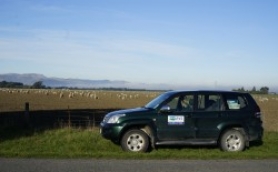
Livestock and Equine mobile services
Our mobile ‘vet clinic’ is the Rolleston Veterinary Services truck. It contains the large animal pharmacy, I/V fluid equipment, surgical equipment, hoof gear, anaesthetic drugs and obstetric equipment, all on four wheels. We will visit your property at a convenient time to diagnose and treat illness, or administer routine preventative health care.
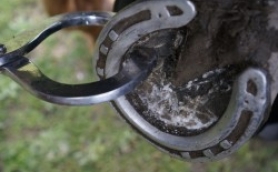
Equine lameness examination
Lameness in horses is a common and often complex problem. The anatomy of a horse’s leg is a piece of art, involving interactions between bones, tendons, tendon sheaths, joints and ligaments. To identify and investigate lameness in horses a thorough lameness examination is performed. This involves a ‘trot up’ to identify the lame leg and thorough examination of the affected limb. Additional tests that may be required include flexion tests, diagnostic nerve blocks, ultrasound or x-rays. Some cases may require assessment of the horse on the lunge or even ridden.
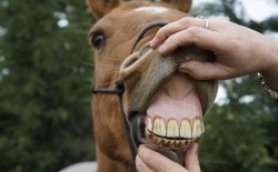
Horse dentistry
We offer preventative and restorative equine dental care. Often unequal wear patterns, malocclusions or misalignments cause sharp enamel points that rub on the tongue or cheeks and cause pain in the mouth. Regular dental examinations are important to ensure problems are identified and remedied early, avoiding unnecessary pain and possible changes in behavior and performance.
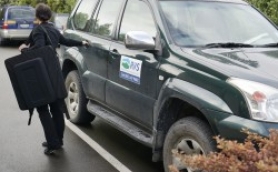
Portable digital Radiography
Our digital radiography unit is fully portable, allowing us to take high quality instant x-rays in the field. Digital sensors are used instead of the traditional photographic film so the radiographs are immediately available for viewing on our portable screen. This is very valuable in the field, as we can obtain diagnostic images in a single visit, without the delays of developing x-rays back at the clinic.
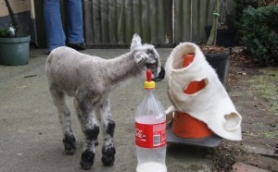
Small acreage livestock seminars
A series of informative seminars covering animal nutrition and health specific to the lifestyle block situation. A number of different species are considered and sessions are tailored to the situation of individual participants. Interactive sessions with small groups, where we can develop your annual animal health plans with you.
Join vets Rachel and Nick for an exciting series of informative sessions covering a wide range of livestock topics. Bimonthly small group sessions held throughout the year will cover livestock handling and husbandry, parasites, common diseases, calf rearing, reproduction, pasture management and annual health plans. Time will be available for discussion and comprehensive course notes will be provided.
See our clinic news for information on the next course, or contact the clinic for more information and to register.
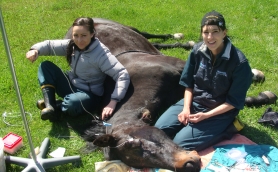
Routine Surgical Procedures
We perform a number of surgical procedures in the field, including stitching wounds, equine geldings, lump removals and bovine caesarians. Smaller livestock such as goats or alpacas can also visit the clinic if they require more advanced surgical procedures.
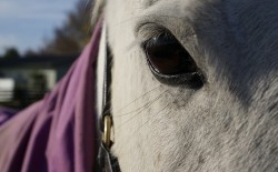
Equine Stud Examinations
We perform detailed fertility examinations of mares and stallions to maximise your breeding success. Ultrasonography enables us to examine the uterus and ovaries to determine any abnormalities, identify the time of ovulation to determine the best time for artificial insemination, and monitor gestation, including identification of twin pregnancies.
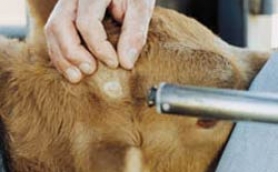
Debudding calves
Horned cattle are a considerable risk to herd mates and their owners, and can harm other animals during transportation.
Calf debudding removes horn buds from young calves safely and humanely to prevent horns growing as the cattle get older.
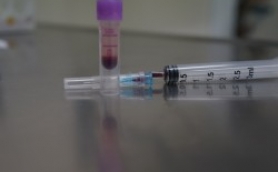
Laboratory
We are able to process routine blood samples at the clinic, providing rapid results. This is especially useful for emergency situations such as horse colics and acutely unwell animals. For all other blood parameters and laboratory work, we outsource most work to Gribbles Veterinary Laboratory in Christchurch.

After hours and emergency service
We share the large animal after hours duty with other large animal clinics. This ensures there is always a large animal vet available to you. For after hours help simply phone the clinic number 347 9682 and you will be given the details of the on call vet.
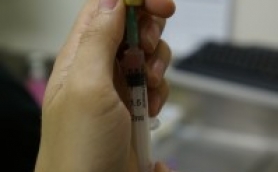
Health check, vaccinations and drenching
We can assist you in developing preventative health plans for your livestock, including vaccinations and drenching. Additionally, we can provide the necessary products for you to administer, or we can administer them for you.
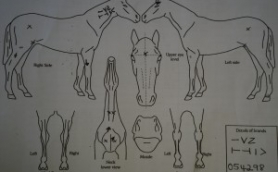
Equine Pre-purchase Examinations
When buying a horse, purchasers often ask for an “Equine pre-purchase examination”. This is designed to identify pre-existing problems, which may influence a horse’s future performance. Abnormalities may be detected, recorded and explained, for the benefit of both the seller and buyer.
The examination involves accurate identification of the horse and a thorough physical examination, and may include additional diagnostic tests such as radiography, ultrasonography, endoscopy or ECG assessment.
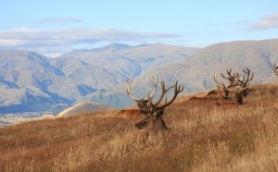
Velveting
Deer velveting is performed under local nerve blocks with animals restrained in a crush or under sedation. Strict protocols are followed for animal welfare and food safety reasons.
We can also remove hard antler from stags, enabling safer handling and transport.
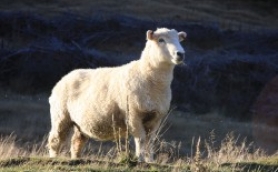
Ram soundness and Brucella testing
A Ram soundness examination is recommended prior to mating or sale of breeding rams. This includes palpation of the ram’s genitalia to identify any abnormalities. Based on these findings, rams are categorised as sound, temporarily unsound or permanently unsound.
In New Zealand, there is an industry based accreditation scheme to control Brucella ovis, a common cause of infertility in rams. Under this voluntary scheme, all sale rams, all rams on the farm over 15 months and any breeding rams under 15 months of age require annual testing. Additionally, all stud rams on the farm, all teasers and 20 commercial rams including any rams with palpable lesions will need blood sampling.
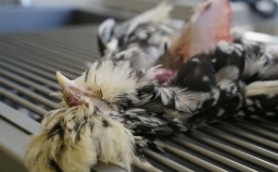
Autopsy
For any unexpected deaths it is important to perform an autopsy investigation to provide an explanation and determine if other animals are at risk. A thorough visual examination of all organ systems is performed, and samples are often collected for additional testing. This can often be carried out back at the clinic, depending on the size of the animal.
